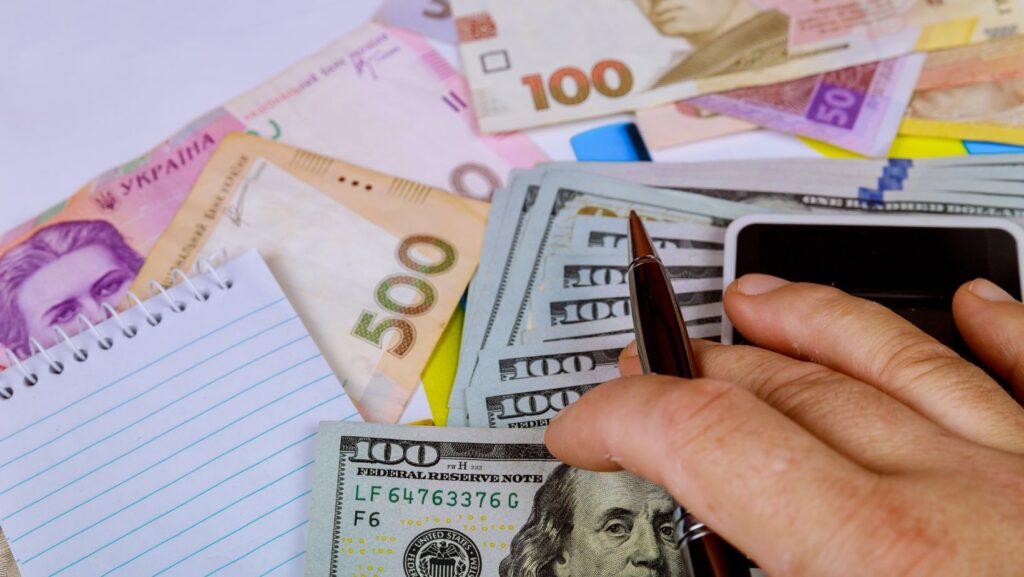
Whenever I travel to a foreign country, I’m stepping into a financial minefield. Or is it just me?
You don’t know what you are paying, the amount the bank charges, the conversion rate from your currency to the local currency, or the fees the bank takes.
So, it doesn’t matter if you bargain a deal at the local souvenir shop when the bank overcharges you for exchanging the money and expensive fees.
But is there a solution?
You bet! It’s called a multicurrency account. It is the knight in shining armor that will help you manage your money efficiently when traveling abroad.
But a multicurrency account isn’t just about saving pennies on your latte in Paris. It’s revolutionizing how we manage our money by adding a global aspect to our credit cards.
Most people choose to go with special cards for international transactions, which usually give you bonuses on your purchases. However, getting a multicurrency account is a better option and can save you more money.
So, let’s dive deeper and find out why having a multicurrency account is very important when traveling abroad.
What’s the Deal With Multicurrency Accounts?
Well, it’s all about helping your bank (or yourself) by simplifying the process of purchasing abroad. International transactions are a nightmare. You don’t know how your bank is going to process the transaction, what the conversion is (did you get favorable rates? “probably not.”), and all the fees involved.
This is why sometimes your bank will treat your Hard-Rock t-shirt purchase like a high-stakes poker game.
That’s because traditional banks love to play a little game called “Let’s See How Much We Can Charge in Foreign Transaction Fees.” But this is where multiple currency accounts come in handy. They let you hold, manage, and spend money in various currencies, thus giving traditional banks a run for their money.
Benefits of Multicurrency Accounts for Travelers
Dodging the Fees
Even though online banking is advanced, trying to calculate the real amount you’ve paid on a foreign purchase is a nightmare. You need to calculate your money exchange and the fees, which can differ from country to country.
The bank charges the fee just because you are making an international transaction, where they need to convert your currency to the local one, and for them it requires resources.
But with a multicurrency account, you’ll convert your currency to the one used at the place you travel to beforehand, get favorable exchange rates, and use the local currency for paying (which means no fees).
Exchange Rates
Banks like to overcharge you when exchanging money, especially on smaller transactions. Why? Well, because that’s one of the ways they make money.
So, if 1 EUR is 1.09, banks will give you closer to 1.05 or less. This might look like a small amount, but when you are making more purchases in a foreign country, you’d want to save every dollar.
For example, the Genome multicurrency account allows you to make international transactions with a flat currency exchange fee of 1%. This is not the case with traditional banks, since they will probably charge you a fixed rate and a percentage that might be higher than 1%.
Multicurrency accounts offer favorable rates because you move more money once before you travel. Converting your money through a multicurrency account will allow you to save money on exchange rates.
Seamless Spending
Gone are the days of fumbling with different currencies at the checkout or the awkward dance of trying to use a foreign ATM while a line of impatient locals forms behind you.
With a card linked to your multiple currency account, you can glide through transactions as smoothly as a hot knife through butter. Whether it’s paying for a tuk-tuk ride in Bangkok or settling your bill at a quaint café in Buenos Aires, it’s all done with a tap, a swipe, or a chip and pin.
More Advantages of Multicurrency Accounts:
Budgeting: A multicurrency account will help you manage your finances easily and track your transactions and fees (if there are any) without solving complicated math problems.
Accessibility: Most multicurrency bank accounts are not directly linked to your main bank account. This is a safer way of handling your money. Why? Well, if you lose your card in a foreign country (which happens), the potential for financial disaster is lower since the account holds only a portion of your money.
Exchanges: Multicurrency account allows you to convert currencies with a button.
Are There Any Downsides?
The short answer is no. There are no drawbacks to using a multicurrency account for traveling. After all, you’ll reduce your fees, save a bit of money, and simplify the entire process, especially if you travel across a few countries.
Plus, you don’t need to go to the local exchange office and wait to get ripped off by the locals since you probably don’t understand their money.
So, if you plan your next trip, learn more about multicurrency accounts and how they can be applied to your financial plan.












